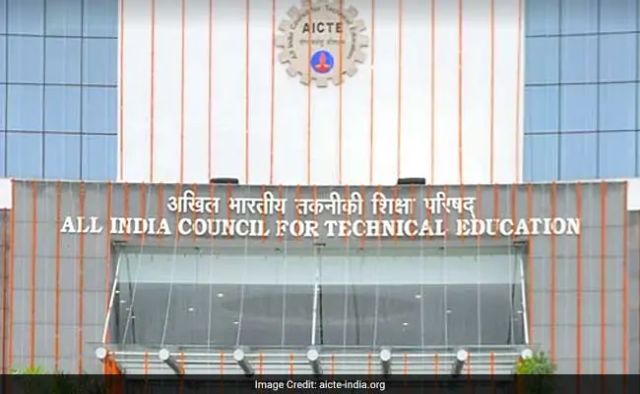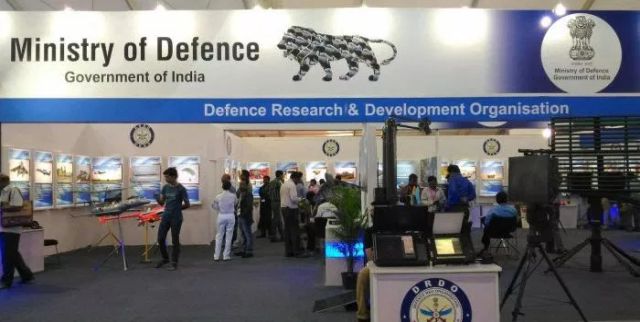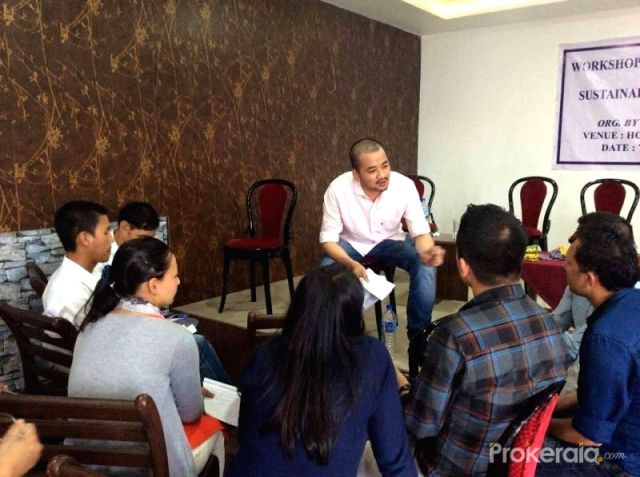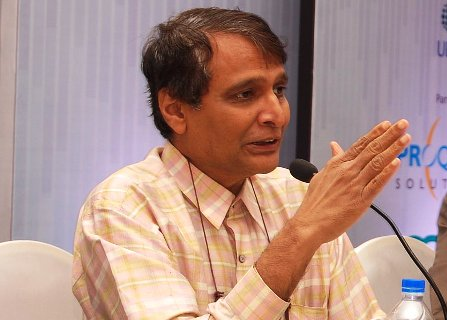
by admin | May 25, 2021 | Entrepreneurship, News, Startup Basics
 Chandigarh : The AICTE has initiated a policy under which universities and colleges along with their normal courses will start entrepreneurship courses, a senior functionary said on Friday.
Chandigarh : The AICTE has initiated a policy under which universities and colleges along with their normal courses will start entrepreneurship courses, a senior functionary said on Friday.
Professor Anil D. Sahasrabudhe, Chairman, All India Council for Technical Education, New Delhi (AICTE) said that there was a need to create a support system for students, including more internship programme or skill programme to hone the skills of students.
“We need to bring students into ‘start-up culture’ and provide a platform where they can convert their bright ideas into innovation,” Sahasrabudhe told media on the occasion of the 51st annual day of the National Institute of Technical Teachers Training and Research (NITTTR).
“We should focus on start-ups. The AICTE, has made its own start-up policy through which universities and colleges along with their normal courses will start entrepreneurship courses,” he said.
The role of the AICTE, he said, was not just of a regulator but also as a facilitator committed to improving the quality of technical education.
He said laboratories and research centres should be opened for 24 hours for students so that they can do research and draw new ideas.
“Indian students have a lot of potential, we need to identify and channelize their ideas in a right direction,” he said.
Professor K.K. Talwar, Chairman of the board of governors of NITTTR, advised the faculty and staff of the institute to rededicate themselves to achieving the objectives and meeting the challenges posed by the dynamic and fast changing socio-economic environment in the country.
He emphasised institutional involvement in improving the healthcare system of the country.
—IANS

by admin | May 25, 2021 | Corporate, Corporate Governance, Entrepreneurship, News, Politics, Startup Basics
 Bengaluru : Defence Minister Nirmala Sitharaman on Saturday called upon startups to develop technologies and weapons for the Indian armed forces.
Bengaluru : Defence Minister Nirmala Sitharaman on Saturday called upon startups to develop technologies and weapons for the Indian armed forces.
“We (Ministry of Defence) want you to provide Indian solutions to problems faced by the armed forces. By indigenisation, India doesn’t need to import many of the products that we do,” Sitharaman told startups in this tech hub.
“India wants its sectors disrupted through technological advancements,” she said at the launch of “Defence India Startup Challenge”, a national contest for startups to develop arms and technologies for the defence sector.
“Indigenisation has been a priority for India, however, we did not indigenise sufficiently enough,” the Minister added, addressing a gathering of 200 startups, incubators and defence officials at the Hindustan Aeronautics Limited (HAL) Convention Centre in the city centre.
Through the contest, startups, small and medium-sized enterprises (SMEs) and individual researchers and academic institutions can take part in 11 different categories of creating technologies and products that can be used by the armed forces.
The 11 categories in which the startups and researchers can develop products or solutions include building see-through armour for the army, development of 4G-based tactical Local Area Network for the Navy, and laser weaponry and unmanned surface and underwater vehicles development for the Air Force, among others.
Select few startups will also receive a funding of up to Rs 1.5 crore through the Ministry for developing their ideas, and given access to test their products.
As part of the event, a Bengaluru-based firm Tonbo Imaging has been given an order to make night fire control system for Russian-made grenade launcher AGS-30.
“The Ministry will ensure the startups working on their ideas get the orders,” Sitharaman said.
Noting that unmanned drones with missiles are the envy of many countries, the Minister added it is not beyond India’s capacity to develop them.
The Defence Ministry, on the occasion, also tied up with five business incubators to promote and support the startups, including Centre for Innovation Incubation and Entrepreneurship with Indian Institute of Management (IIM), Ahmedabad; Society for Innovation and Entrepreneurship with the Indian Institute of Technology (IIT) Bombay; T-hub startup incubator in Hyderabad; ‘Forge’ incubator in Coimbatore; and IIT Madras.
“The contest is in line with the Innovations for Defence Excellence (IDEX) scheme announced by Prime Minister Narendra Modi earlier in April during Defence Expo in Chennai, to promote innovation and entrepreneurship in defence sector,” an official statement said.
The competition will also give a fillip to the country’s innovation potential and create networks for collaboration between defence sector and startups, it added.
Over 200 startups, 50 SMEs and 12 business incubators took part in the defence-business gathering.
—IANS

by admin | May 25, 2021 | Business, Business Ideas, Corporate, Corporate Buzz, Entrepreneurship, Markets, SMEs, Startup Basics, Technology
 Hyderabad : Disruptive business ideas on extended reality, unmanned aerial vehicle (UAV) technology and Internet of Things (IoT) by Indian startups at the “Demo Day” of the Boeing HorizonX India Innovation Challenge on Monday.
Hyderabad : Disruptive business ideas on extended reality, unmanned aerial vehicle (UAV) technology and Internet of Things (IoT) by Indian startups at the “Demo Day” of the Boeing HorizonX India Innovation Challenge on Monday.
At the event held at Boeing’s India Engineering & Technology Center (BIETC), Merxius, HUVIAiR and ZestIoT joined three teams from BIETC in presenting to an audience of prospective investors and customers, as well as government stakeholders.
The Demo Day marks the culmination of a three-month accelerator programme launched in collaboration with T-Hub, a global startup catalyst that powers entrepreneurship. Following a stringent evaluation process, six teams from a competing pool of more than 100 ideas and applications, have won the opportunity to join the cohort.
The ideas presented by the three external finalists range from Extended Reality (XR) applications to the use of IoT for aerospace, said a statement from T-Hub.
Merxius has developed a product that enables the creation of XR environments to save cost and reduce training time in aerospace manufacturing. HUVIAiR refined custom unmanned aircraft services and software solutions for survey and workflow management. ZestIoT explores solutions that connect the airport and airplane ecosystem using IoT to optimize ground handling at airports and improve on-time performance of airplanes.
The six shortlisted startups took part in a three-month accelerator where 30 subject-matter experts from Boeing and T-Hub mentored them and exposed them to potential customers, while strengthening their offerings and capability.
“The collaborative ecosystem of corporates and startups, like the one T-Hub is driving in the country, will become a common trend in a few years. Boeing brings a strong legacy of technological breakthroughs, and we are immensely pleased to collaborate with them in exploring the right startup talent to support its innovation goals,” said Jay Krishnan, CEO of T-Hub.
“Innovation can happen anywhere and startups around the world have the potential to bring disruptive capabilities to aerospace markets and drive our industry forward,” said Brian Schettler, Managing Director of Boeing HorizonX Ventures.
Boeing will continue to collaborate with the three external startup teams to help further their businesses. The ideas presented by the Boeing teams are under evaluation as potential future company offerings.
“Both external startups as well as internal ideas promise to disrupt business models and service delivery in aerospace. We are excited to tap into a new pool of ideas from India which will surely change the global aerospace industry,” said Pratyush Kumar, president, Boeing India.
—IANS

by admin | May 25, 2021 | Business, Business Ideas, Emerging Businesses, Employment, Entrepreneurship, Home-Based Business, Investing, Medium Enterprise, Private Jobs, SMEs, Startup Basics, Your Business Plan

Founder of NE Taxi Rewaj Chhetri
By Sarwar Kashani,
Gangtok : Sikkim has many distinctions that give the tiny state nestled in the Himalayas between India and China a larger-than-life profile. It is the only organic state in India, is litter- and defecation-free, has high literacy and has the best working conditions for women. But the challenge of unemployment it faces is huge which has made many embrace entrepreneurship to not just generate jobs for themselves but to provide employment to the state’s aspirational youth.
Amid negligible presence of the private sector and government employment opportunities already saturated, a small but dedicated band of young entrepreneurs is meeting the challenge head on — using innovative start-ups to generate jobs. Home to nearly 610,000 people, Sikkim boasts of being the third-richest state (after Delhi and Chandigarh) by per capita income in the country.
In 2008, Sikkim became India’s first open defecation-free state. Eight years later, it became the country’s first and the only organic state. A nationwide survey in 2016 said the state had the best working conditions for women in India. The literacy rate is seventh highest and its young are educated but, without jobs, drifting into drugs and despair.
The state has the second-highest unemployment rate in the country after Tripura, also in the Northeast. The unemployment rate per 1,000 people aged more than 15 years was at 136 in 2016-17 in the state, according to the Annual Employment and Unemployment Survey report. Another singularity this least populated state in India holds is that 10 per cent of its population is in government jobs — which is way above the national average of 3.5 per cent.
That is why Chief Minister Pawan Chamling has an advice for thousands of youth waiting for jobs in the state: They should overcome the desire to get government employment and, in fact, help the state to create jobs for others. Some of the youth have taken a cue from the Chief Minister who has been ruling the state for a quarter of a century now.
Among them is serial entrepreneur Rewaj Chettri, who has launched over 30 enterprises — the most recent being the taxi aggregator app, NE Taxi. He started the app with Rs 300 that he spent on purchasing a domain name www.netaxi.in, using shared hosting two years ago. NE Taxi is a tourist cab service catering to travelers in the northeast. He now employees 26 people and has his “annual turnover crossing Rs 3 crore”, making it to the Forbes list of Asia.
“We are a bootstrapped company and all the profits are pumped back to grow the business. We are set to expand to North India by the end of 2020,” Chhetri told IANS.
“I feel that the state government was a platform provider and opportunity creator… We all just need to grab it,” he said, referring to the government’s start-up scheme that aims to disrupt mindset of the youth and instill entrepreneurship spirit among them.
Through the start-up scheme, the government provides financial assistance in terms of seed capital of 25 per cent of the project cost — even 35 per cent in certain cases — entailing total investment up to Rs 20 lakh.
The remaining portion of the project cost has to be arranged from banks by way of loans.
Chhetri and other budding entrepreneurs have started what they call a “Entrepreneurs’ Hub and Consultation Centre” where they build sustainable robust start-up ecosystem in Sikkim with the government’s support.
Among some 3,000 beneficiaries of the initiative is Devika Kerongay, the founder of Fidgety Fingers, a social enterprise that “empowers” women by teaching them craft and knitting, “teaching them how to fish rather than giving them fish to eat”, Kerongay said, adding she needed no investment and took no finances.
“It was started to empower underprivileged and rural women financially and socially… and to reintroduce and preserve the vanishing art form of fibrecraft,” she told IANS.
Women mainly belonging to underprivileged families — school drop-outs, young mothers, urban poor and from rural areas — are trained free of cost to knit, crochet and craft at her enterprise of fibrecraft — the art of making useful and decorative objects by hand or by using only simple tools.
After training, the women either start their own enterprises, or work with Fidgety Fingers that markets their products.
“We have always received encouragement and moral support from the government. The government acquires our products for their officers as well as various of its official functions. The support has been incredible.”
Yougan Tamang is a researcher, journalist, blogger and also a social entrepreneur. A gold medalist in anthropology and a Sikkim State Awardee 2013, Tamang now owns a digital media house Sikkim Chronicle that he co-founded with his friends Nirmal Mangar and Kabita Sharma last year.
“I (always) wanted a job from which I would never retire. Entrepreneurship provided me one. My love for traveling, meeting new people and learning and sharing ideas led me to start Sikkim Chronicle.”
It doesn’t stop there. Tamang wants to expand the Chronicle into a bigger media house “not just in Sikkim but in the entire Northeast”.
The way out of unemployment through entreprenuership and skill development is also helping the otherwise “golden state” with all-round development battle depression and suicidal tendencies of its youth. Sikkim, according to a report, has one of the highest suicide rates in the country.
According to a 2016 study by Indian Journal of Psychiatry, some 1,604 suicide cases were recorded from 2006 to 2015 in the state that also battles a scourge of drug abuse. A majority of those who killed themselves were found unemployed.
(The weekly feature series is part of a positive-journalism project of IANS and the Frank Islam Foundation. Sarwar Kashani can be contacted at sarwar.k@ians.in)
—IANS

by admin | May 25, 2021 | Business Ideas, Economy, Entrepreneurship, News, Politics, Startup Basics, Your Business Plan

Suresh Prabhu
Kolkata : New India should have an economy driven by entrepreneurship and innovation, Union Commerce and Industries Minister Suresh Prabhu said here on Saturday, cautioning that the debate between public and private sectors should be judged solely by national interest and not by ideological considerations.
“In new India, we must make sure India should be the dominant economy of the world, India must be a model economy of the world, it must have a model industry… India must have an economy driven by entrepreneurship and innovation,” Prabhu said here.
Addressing students of National University of Juridical Sciences, the Union Minister said one needs to find out whether the public or the private sector or both together best serve India’s interests in a given field, time and situation.
“We should not just be swayed by ideology. We should not say public sector will solve all the problems nor should we say public sector will not exist. We must find out what is good for India. And that what is good for India will change from time to time,” Prabhu said speaking on the topic “Privatising Public sector: The Lessons Learnt and Way Ahead”.
Turning to 1956, when Parliament passed the Industrial Policy Resolution that stressed on state control of the economy, Prabhu said: “There is no point in now saying whether it was right or wrong. May be it was right. But just because it was right in 1956, one should not assume it will be right in 2018.
“We have to keep evaluating the situation, and take right decisions. Future of public sector is not as important as future of India. What is important is future of India,” he said.
He said in a changing world, one needs to be flexible with ideas about the development of the country.
“What is necessary for India will keep on changing because the world is changing. So if we just take one idea and say we won’t look at any other idea as our idea is the best, that will be akin to an ostrich mentality.”
Without naming any country, he said the nations which did not change with time were now struggling, “trying to come out of the shell, and make new friends, just to integrate into the new economy”.
—IANS

 Chandigarh : The AICTE has initiated a policy under which universities and colleges along with their normal courses will start entrepreneurship courses, a senior functionary said on Friday.
Chandigarh : The AICTE has initiated a policy under which universities and colleges along with their normal courses will start entrepreneurship courses, a senior functionary said on Friday.



